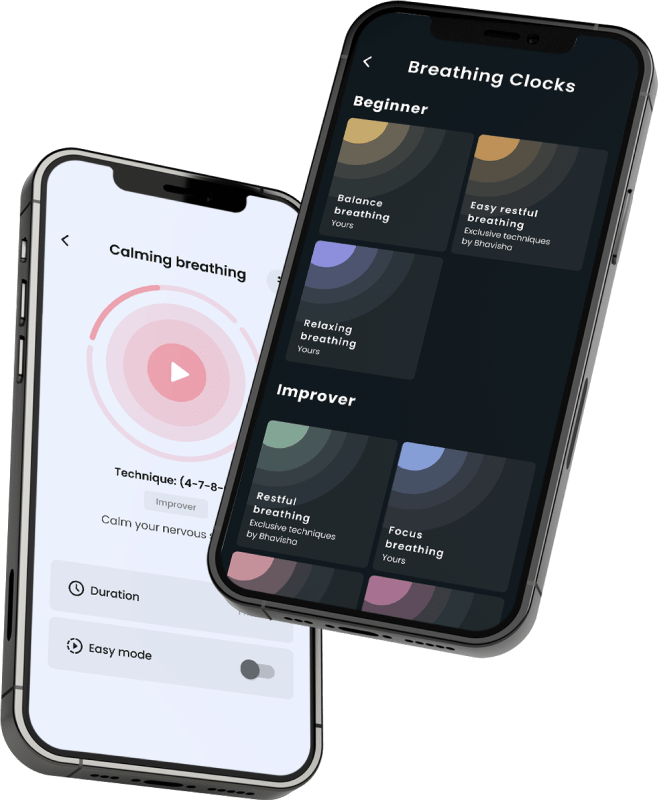Everything You Need to Know About Stress Eating

The connection between mood and food is one we're probably all familiar with. The frustrating thing is that unwanted food cravings can kick in when we feel at our lowest emotionally and the habit can be hard to overcome, making weight loss efforts an almost impossible task. We'll explore the link between stress and eating and will recommend mindful eating techniques and tips to ensure we adopt healthy habits in the long run.
What is stress eating?
So what exactly triggers us to reach for the ice cream when we're going through a break-up, dealing with unrealistic work deadlines or feeling financial pressures?
When we're stressed, the nervous system sends out signals to release adrenaline. Adrenaline's aim: to aid the fight or flight response which helps us decide how to face the stressful situation. This is usually a temporary state and - actually decreases a person's appetite short term - but if the stress persists then another stress hormone cortisol is released. Cortisol ramps up appetite and can cause overeating if the stress episode doesn't go away. In addition, cortisol can increase cravings for sugary or fatty foods which can have us lusting after that second portion of dessert. Research shows that women are more predisposed to use food to cope with stress rather than men.
The link between weight gain and stress has been researched by the American Psychological Association survey, who found that a quarter of Americans rate their stress level as 8 out of 10 or higher. With such high personal stress levels it's important to know the effects and triggers of emotional eating and how to spot if you are an emotional eater.
How do I know if I am stress eating?
Luckily, we can decipher the difference between emotional hunger and physical hunger by noticing the subtle differences.
Generally speaking, when we're feeling weak or emotionally low, the hunger comes hits quickly and suddenly. Our brain tells us we very urgently need certain foods. With a real or physical hunger, the urge should creep upon us more slowly and steadily and often starts with a rumbling stomach. A rumbling tum is a true signal that you're hungry.
Craving a specific food, be it junk food or something we know won't be doing our bodies much good? It's likely to be emotional hunger kicking in. If our stomach is telling us we're actually hungry, anything should be good enough to eat.
Stress eating also encompasses mindless eating such as finishing off a whole packet of biscuits while watching TV without really thinking about it. It's unlikely you were hungry enough for the whole packet, nor did your stomach tell you to polish it off in one go!
What are the effects of stress eating?
Not surprisingly, when we've had an intense episode of stress eating - particularly over time - there are certain side effects that we may experience:
- Guilt - The most common psychological side effect is the guilt we may feel after we've overeaten or eaten something bad. Maybe you were doing well adopting health eating patterns and one episode of stress eating caused you to fall off the wagon. You then feel depressed with low esteem which can trigger more stress eating episodes. It can develop into a frustrating vicious cycle that's hard to break.
- Nausea - Increasing our food intake in one go may make us feel comforted for a short time while we're eating but the full stomach and sickness that can follow will not. Symptoms of overeating can sometimes last days and in addition to nausea could include fatigue, sluggishness or drowsiness.
- Weight-related health problems - If the emotional eating continues over a long period of time, it could result in more serious conditions such as diabetes, heart disease, stroke, high blood pressure and high cholesterol.
Why do we eat junk food when stressed?
Quite simply, when cortisol is pumped out during a stressful event, our bodies crave traditional comfort foods. Think carb-rich foods such as pizza, chips or a big bowl of pasta, fatty, greasy crisps and meat or sugary-filled doughnuts, chocolate or pastries.
These dense, high-sugar, high-fat foods provide a boost of energy and a big dose of calories to help our bodies know how to react. One we've digested them, they dampen stress hormones and our body's fight or flight response, thus getting us back into 'normal us' mode.
Is it okay to stress eat?
While it may cure a short term problem and instantly dull that craving, eating your feelings won't solve the emotional problems you're experiencing to start with. When we eat something naughty as a reward or treat it isn't always bad but when we rely on eating as a coping mechanism for when we're feeling anxious, depressed, stressed, lonely or bored then this can kick start an emotional eating cycle. After the binge, you feel guilty having eaten so much, which leads you to feel bad about yourself which then results in another bingeing episode, and so on. The initial trigger is never addressed.
However, there are studies to show that emotional eating may not be all that bad, and that eating snacks - particularly those regarded as 'tasty' - improved low mood in emotional eaters.
The occasional treat may be less risky for those in tune with their emotions, according to Stacey Linton, PsyD. She says: “An individual who usually has high insight into their emotions, and often utilises positive coping strategies, may find themselves eating a whole tub of ice cream after a relationship breakdown while watching The Notebook. If this is not a usual pattern of behaviour, then there are [likely] no long-term negative effects.”
How to stop stress eating
As with many behavioural disorders, the important thing in breaking the unhealthy cycle is to recognise what is triggering you to behave this way:
- Keep a food diary - Writing down your feelings, what you eat, when you eat it, how much you eat, how you feel when you eat it and how you feel after can help to track behaviour and emotional state. You may find patterns of triggers and feelings which can help.
- Break the emotional cycle - If you're finding you're eating through boredom, find a hobby. If the trigger is stress, try some meditation or yoga such as those curated on Yours app to relax you and reset your body and mind. Someone who eats when they feel depressed or sad could try some exercise, getting out in the fresh air or calling up a friend as a welcome distraction.
- Emotional vs physical - Check the symptoms to know if you're actually hungry or if it's simply your feelings talking. If you ate a big lunch recently then you're probably not really hungry.
- Take away temptation - If you don't have the sugary, fatty foods in the house to begin with then you're less inclined to reach for them when you're experiencing negative emotions.
- Snack healthily - Don't deprive yourself of certain treats every now and again. A good balance is the way to achieve healthy weight loss - banishing enjoyable foods completely may only serve to increase cravings. The rest of the time, try low-fat versions of your favourite snacks, fresh fruit, or chopped up vegetables with low fat dip.
- Forgive yourself - Remember tomorrow is a new day. If you have one setback day, get back on the wagon and learn from it the next. Being kind to yourself and making small, positive changes in baby steps will help you in the long run.
Try to remember that emotional eating is more than a simple lack of willpower or self-control. If you feel the need for expert help then see your GP who can refer you to a nutritionist to get you on track to a better relationship with food.
Frequently Asked Questions
Can stress cause you to overeat?
Yes stress hormones trigger cravings for sugary and fatty foods and lots of them, but it's worth nothing that it's not just stress that can bring on these feelings. Other feelings of guilt, depression, loneliness, anxiety, grief or boredom can all play a part. It's important to recognise those feelings as early as you can.
Can stress eating cause weight loss?
Stress eating is eating when you're not hungry and it is unlikely to cause weight loss. In fact, it can interfere with any planned weight loss or diet you were trying to stick with. Stress can also result in unintentional weight loss if you're changing jobs, going through a divorce or dealing with bereavement. It is natural to lose your appetite for a while under these circumstances and it should return but if it doesn't seek professional help to stop it from become unhealthy.
What is stress belly?
Ok, so it's not a medical term but stress belly relates to an excess of fat around the middle and can be the sign of something more serious. While genetics or ageing can play a part, your spare tyre could also be attributed to high cortisol levels. Ideally, after the initial burst of cortisol that happens when we are stressed, cortisol will go down and our normal eating habits return, but when people feel extreme stress over long periods of time the emotional eating triggers hang around - and so does the belly! Try regular exercise, good sleep habits, healthy eating and avoid alcohol to regain control and keep emotional eating at bay.

